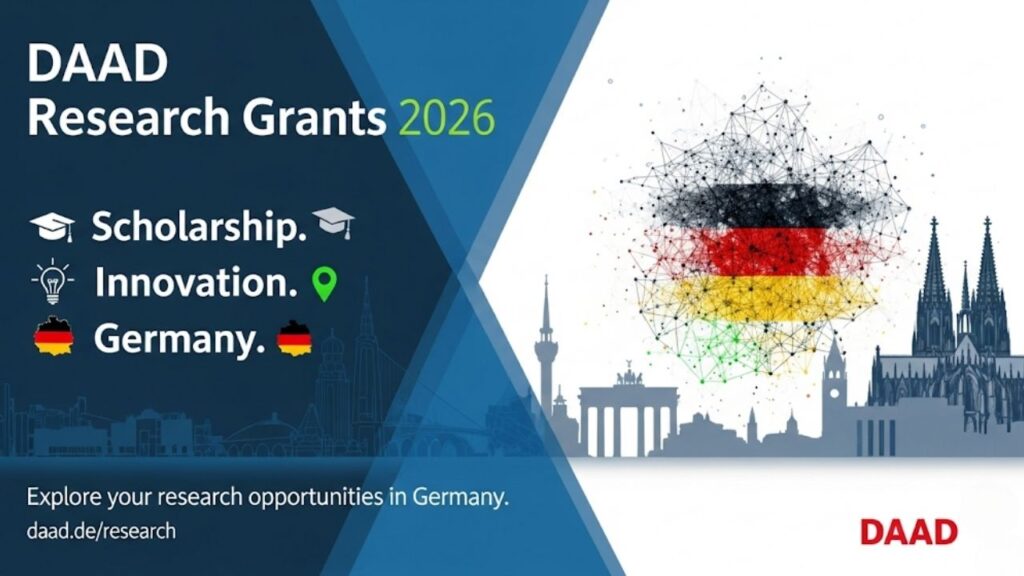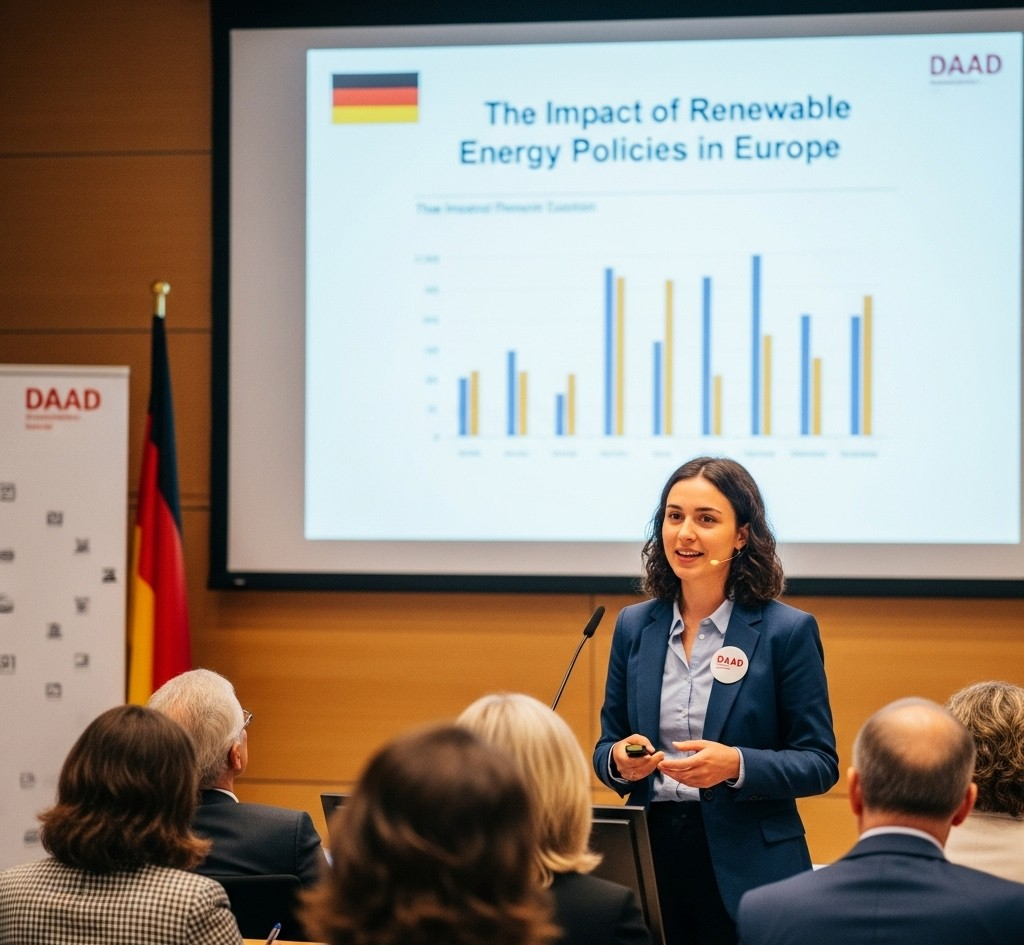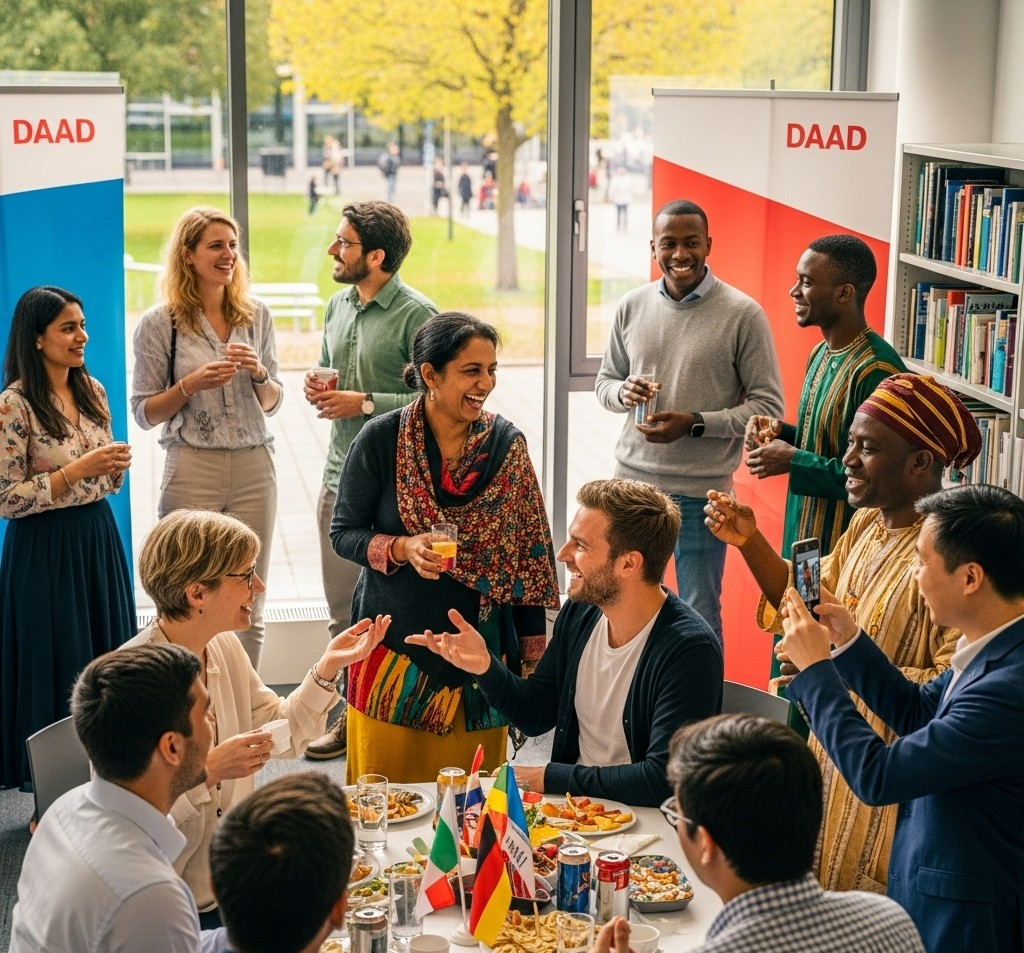If you’ve been dreaming of a fully funded research career, the German DAAD Research Grants 2026 offer a golden opportunity to turn that dream into a reality. Germany, with its rich academic tradition and state-of-the-art research facilities, has become a top destination for scholars worldwide. The DAAD (German Academic Exchange Service) is at the heart of this, providing generous scholarships that empower future leaders. This article is your comprehensive guide to understanding the DAAD Research Grants, from the application requirements to practical tips that can help you secure this prestigious scholarship.

Applying for the German DAAD Research Grants 2026 is a significant undertaking, but it is an incredibly rewarding one. The preparation you put in now is an investment in your future. Start by identifying potential supervisors and reaching out to them. Refine your research idea, write a compelling motivation letter, and gather your academic documents.
What Are the DAAD Research Grants and Who Can Apply?
The DAAD Research Grants are a suite of scholarships designed for highly qualified graduates, doctoral candidates, and postdoctoral researchers from outside of Germany. These grants are not for a full master’s degree, but instead are specifically for research projects that can be integrated into your doctoral or postdoctoral career. The grants provide a valuable opportunity to conduct your research at a state or state-recognized university or a non-university research institution in Germany.
The eligibility criteria are quite specific, but don’t let that intimidate you. In my experience advising students, the key is to ensure your project and academic background align perfectly with the program’s objectives.
Who is eligible to apply?
- For Doctoral Candidates/PhD Students: You must have completed a master’s degree or an equivalent qualification with above-average results. The grant can fund a doctoral project for up to four years.
- For Postdoctoral Researchers: You must have completed your doctoral degree with excellent results before the funding period begins. This grant typically supports short-term research stays of 2 to 6 months.
Decoding the Stipend and Benefits: A Clear Path to Financial Freedom
A significant part of the appeal of a DAAD scholarship is the robust financial support it provides, which allows you to focus entirely on your research. The DAAD Research Grants for doctoral students and postdocs are particularly generous.
The monthly stipend for doctoral candidates and PhD students is currently €1,400. This amount is designed to cover your living expenses in Germany, including housing, food, and daily necessities. In addition to the stipend, the DAAD also provides:
- Health, Accident, and Personal Liability Insurance: This is a crucial benefit that provides peace of mind, as DAAD covers the cost of comprehensive insurance.
- Travel Allowance: A lump sum payment to cover the costs of your travel to and from Germany.
- Annual Research Allowance: For grants lasting more than six months, you receive an annual research allowance of €460 to support your project’s costs.
Under specific circumstances, you may also be eligible for additional support, such as a monthly rent subsidy or an allowance for accompanying family members, making the scholarship an even more comprehensive package for those with dependents.

The DAAD Research Grants 2026 Application Guide: A Step-by-Step Approach
Securing a DAAD Research Grant requires a meticulous and well-prepared application. I’ve seen many successful applicants focus on a few key areas that really make their submissions stand out. The process is primarily online through the DAAD portal.
Here’s a breakdown of the critical steps and documents you’ll need:
- Find a Host: Before anything else, you must secure an academic supervisor at a German university or research institution. This is a non-negotiable step for the Research Grants. Your supervisor must provide a formal letter confirming their willingness to supervise your project and provide a workplace. This is a key requirement and shows that your project has been thoroughly vetted.
- Prepare Your Research Proposal: This is arguably the most important part of your application. Your proposal should be a detailed and compelling description of your research project, demonstrating its originality, topicality, and relevance to your field. It should outline your research questions, methodology, and a realistic timeline for your work.
- Gather Required Documents: The DAAD portal requires a number of documents, including a full tabular CV (max. 3 pages), a list of your publications (if applicable), and your university degree certificates with final grades. You will also need a strong letter of motivation (1-2 pages) that explains your personal and academic reasons for pursuing your project in Germany and how it aligns with your future career goals.
- Secure Letters of Recommendation: You must submit at least one recent letter of recommendation from a university teacher who can speak to your academic qualifications. The DAAD provides a specific form for this purpose, which you must generate and send to your recommender.
- Submit through the DAAD Portal: The entire application must be submitted online. The official DAAD website offers detailed instructions and a helpful “How to apply online?” PDF guide to walk you through the portal’s interface.
Timing is Everything: Understanding Important Deadlines
Application deadlines vary by country and program, so it is absolutely essential to check the DAAD database for the specific deadlines for your country of origin and chosen program. For the DAAD Research Grants 2026, deadlines often fall in late summer or autumn of the preceding year (e.g., late 2025). Missing a deadline, even by a minute, means your application will not be considered.
Crafting a Winning Application: The Art of Standing Out
While meeting the eligibility criteria is the first hurdle, a successful application truly shines with its quality. Here are a few tips to help you craft a truly compelling submission:
- Passion is Key: Your letter of motivation and research proposal should reflect a genuine and deep passion for your research topic. The selection committee wants to see that you are not just a good student, but a dedicated and innovative researcher.
- Be Specific and Feasible: Don’t be vague. Detail why you’ve chosen your specific host university and supervisor. Explain how their expertise and the institution’s resources are the perfect fit for your project. A well-structured timeline in your proposal shows that your project is not just ambitious, but also achievable.
- Highlight Your Accomplishments: Go beyond your GPA. If you have any publications, conference papers, relevant internships, or work experience, make sure they are clearly listed and their significance explained in your CV.
- Language Skills Matter: While many research projects can be conducted in English, especially at the PhD and postdoc level, demonstrating proficiency in the language of instruction (whether German or English) is a requirement. DAAD also offers German language course support, which can be a fantastic way to integrate into German culture and daily life.
Life as a DAAD Scholar: Beyond the Lab
Becoming a DAAD scholar is more than just a financial boost; it’s an invitation into a dynamic academic and cultural network. You’ll join a community of international scholars and benefit from DAAD’s extensive alumni network. Germany is a country that values cultural exchange and offers countless opportunities for personal and professional growth.

Maxwell King PhD Scholarship 2025: A Prestigious Path to Your Doctorate at Monash University
A Life-Changing Opportunity: Your Comprehensive Guide to the SEARCA Full MS & PhD Scholarships 2026
FAQ
Is there an age limit for DAAD Research Grants?
No, there is generally no fixed age limit for DAAD scholarships. However, a key criterion is that your most recent university degree should not have been completed more than six years before the application deadline. Exceptions can be made for periods of caregiving, illness, or military service.
Can I apply if I have not yet received my most recent degree certificate?
Yes, in most cases, you can apply if you are in the final year of your studies. However, you must submit proof of your degree before the funding period begins.
Do I need to be fluent in German to apply?
Your language requirements depend on your host institution and the language of instruction for your research project. Many research projects, particularly at the doctoral level, are conducted in English. However, some proficiency in German is always a plus, and DAAD offers support for language courses.










